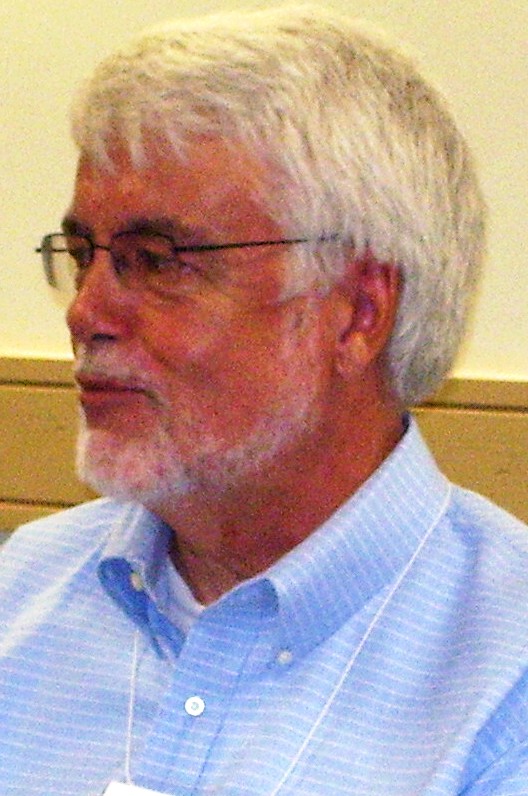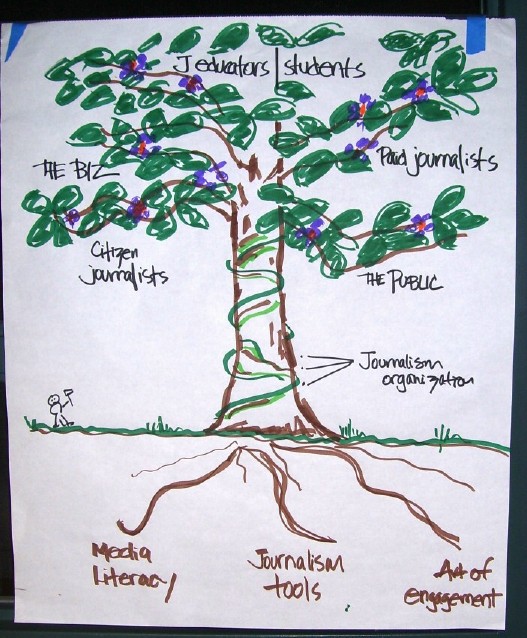




Report of Journalism That Matters Breakout session
RETURN TO MAIN REPORTS PAGE
Notes submitted by Vikki Porter
VIEW/LISTEN TO AUDIO/VIDEO STREAMS OF THIS BREAKOUT
Bill Mitchell, director of Poynter Online, convened this breakout group to help him as he prepares to reinvent Poynter Online to better help journalists who are working in multiplatform worlds.
Mitchell’s hope is to bring together Poynter and its online program with the resources and synergies of other journalism organizations including other professional education programs as well as with “evolving” journalists, broadly interpreted to include nontraditionals.
The group discussion identified an assortment of what journalism and journalists “need.” According to our group, those needs include:
*A media-literate audience that understands the diversity of sources and has the sophistication to distinguish the credible among the many voices;
*Specialists who have depth and breadth of understanding on a myriad of topics as well as the passion to continue to develop expertise;
*Openness or embracing of citizen journalism and ability to analyze what’s good, bad etc.
*Training for bloggers, citizen journalism principles, fact-checking
*Tools for research and information management for citizen journalism
*A greater sense by MSM in how to engage, collaborate with cj and community expertise that has historically been missing from the mainstream media. (Newsrooms need to decide “Whose job is it to wrangle the community expertise?”)
*Team up with universities to create training in how to use and create the news.
What do teachers of journalism need?
· Remove the accreditation rules that have become a barrier rather than support to evolving the course work of traditional curriculum.
· Need more flexibility in what they do – internet courses, need for versatility of skills.
· Need for media literacy training among all – teachers, citizens, students
Training that legitimizes citizen journalists? What could Poynter specifically do?
* Use of archive to create a resource section for citizen journalists.
*Provide guides for citizen journalists.
*Possibly certify or review cj offerings?
The discussion refocused on what the Poynter Online operation could do particularly for the core audience – professional journalists:
*Best practices/lessons learned – what works, what didn’t and why?
*Craft and techniques
*Ideas that work – learning to take risks
*Culture change?

The discussion resulted in the framework for our presentation: The tree of journalism must be firmly rooted in ethics/standards, skills training, media literacy and community involvement.
The roots then feed the branches of professional (paid) journalists, citizen journalists, the business side of the equation and public governance.
Wound tightly around the tree must be a network of supporting vines that link together: Poynter and an assortment of other groups with the same goal: transforming journalism for the digital future.